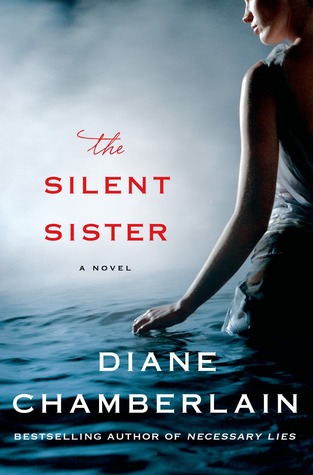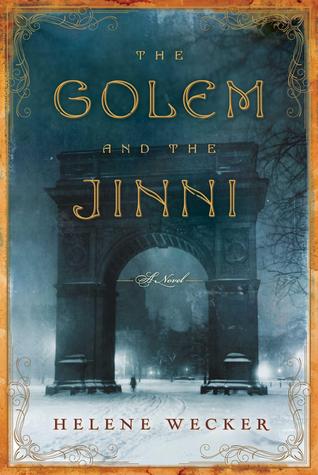I am not a finicky reader. I have no alliances according to genre or time period. I am not fond of romance, but, as with panna cotta, I will not turn it away if it is done well. I do not require a book to be a work of literary genius in order to like it - but it must be good at being what it is.
 I will elaborate. A pizza that has a lot of cheese and a lot of pepperoni and the right amount of sauce is a pizza I will enjoy - I am hoping for a pizza, this is the platonic ideal of a pizza, and as such, I am apt to describe it as quite a fine pizza. A pizza, however, that is composed of crisp unleavened flatbread topped with arugula and balsamic vinegar and pears is not something that I am likely to be pleased by, should I request a pizza for my dinner. I should not be pleased by that at all, because it is clearly a non-pizza playing at being a pizza. I should likely be very disappointed and gaze with longing at my neighbor's plate of spaghetti, wondering why I chose such an expensive and irritating restaurant in the first place.
I will elaborate. A pizza that has a lot of cheese and a lot of pepperoni and the right amount of sauce is a pizza I will enjoy - I am hoping for a pizza, this is the platonic ideal of a pizza, and as such, I am apt to describe it as quite a fine pizza. A pizza, however, that is composed of crisp unleavened flatbread topped with arugula and balsamic vinegar and pears is not something that I am likely to be pleased by, should I request a pizza for my dinner. I should not be pleased by that at all, because it is clearly a non-pizza playing at being a pizza. I should likely be very disappointed and gaze with longing at my neighbor's plate of spaghetti, wondering why I chose such an expensive and irritating restaurant in the first place.It is from this perspective that I deeply enjoyed Cuckoo's Calling, the first of two Robert Galbraith novels. They are both classic Brit-noir, and they are both very good at being exactly that. The Cormoran Strike series (named, as detective novels should be, for the protagonist) has suffered a great injustice at the hands of the press and public. It is no longer any kind of a secret that Robert Galbraith is a pseudonym under which J.K. Rowling attempted to write something that was not Harry Potter. Like a woman in a Scorcese film, this book simply could not win - countless critics refuse to accept the famous authors' attempt to jump genres. Unlike them, I will not draw comparisons between the Cormoran Strike novels and the Harry Potter series. It disrespects the author and the books themselves in equal measure, and makes the critic look like the simplest kind of fool.
So. Down to business.
The Cuckoo's Calling by the pseudonymous Robert Galbraith
We are introduced to him from the perspective of his new secretary, who is given far more nuance and depth than female characters in these sorts of novels are typically. Point to Galbraith for that. A hundred points to Galbraith for that - I will always prefer a novel in which the women are well-developed over one which treats us as so much set dressing. Robin (the secretary in question) has goals and hopes and dreams and a personal life that she does not abandon as soon as the plot might make it difficult to maintain. Mercifully, Galbraith draws no romantic connection between her and Strike; they are allowed to have real relational development beyond the demands of such a nauseating cliche.
A note on pseudonyms, and why I am using "Galbraith" instead of "Rowling": I will always and only refer to an author by his or her chosen name. Choosing a pseudonym is difficult, and I deeply respect the process and struggle involved with selection and implementation. When I was deciding the name under which I would spend the rest of my life in hiding, I went through a list of fifty-seven before settling on Adelaide Swift. Rejected names included Marchesa Matchbook (too appropriate), Veronica Pettybottom (too oblivious), and Antonia Tafferton (too close to home). Choosing a name by which to identify oneself is arduous enough without people willfully disregarding ones' stated preference.
I have digressed perhaps a shade too far. Back to the book. The plot is almost secondary to the writing and characters; it proves a useful framework on which Galbraith can display his skill at building engaging personalities. I shall discuss said plot anyway. Lula Landry (a perfect detective novel murder victim name), a famous model, is thought to have committed suicide; her slightly unstable brother hires Strike to prove that she didn't. Strike pursues the mystery in an incredibly professional and thorough manner - luck falls on him occasionally, but he is well beyond skilled enough to be worthy of our attentions. I hate few things so much as a useless protagonist who seems to stumble into the plot with all the grace of a two-legged elephant; Cormoran Strike proves himself capable of the dexterity demanded by the plot, and I found myself highly invested in him.
Now, for Spoilers.
A critical factor in my judgment of any book - especially a mystery - is it's ending. You've been warned.
No noir is complete without the final reveal, which must include logical conclusions of which our P.I. hero has been suspicious all along. Cuckoo's Calling does not disappoint. Strike weaves a gorgeous answer to the mystery by calling Landry's unstable brother to his office, lowering the blinds (in a perfect noir callback that reminds the reader exactly where they are), and unflinchingly describing the extent of his misdeeds. It is an extraordinarily satisfactory ending, tying up all of the loose ends in the novel and resolving things that did not at first seem to need concluding, but which suddenly become far more satisfying when connected to the primary plot.
I have seen some objections to the fact that we are told the final solution to the mystery, rather than "shown" the answers - I disagree with these criticisms heartily. In a multigenerational family disappearance mystery, the answers can be smoothly revealed in an alternative perspective jump back to the moment of the murder. In a young adult fiction novel about bullying or suicide, chapters might alternate between escalating developments and their future consequences. It's a lovely way to draw a reader along through a developing plot.
But in a noir, the detective gets to confront the villain and explain the methods and evidence by which they uncovered his misdeeds. To take that right away from Cormoran Strike would be injustice on the level of refusing to give your executive administrative assistant a raise year after year in spite of her obvious growth and development - unacceptable, and naturally deserving of retaliation.
I will be very clear - the Cormoran Strike novels (for I have read them both and will consider this review as applicable to them equally) are not groundbreaking literature. They are not going to define a genre or change the landscape of an existing one. What they do accomplish is what many books should strive for with greater ardor: they are the platonic ideal of their genre. They perfectly are what they set out to be. British Noir could easily be measured by how many pints of Cornish beer Cormoran Strike drinks while deciding how best to make his next investigative move. They are honest books - a job well done - and perfect for reading when you are craving West Country accents, high-bred debauchery, and the slanting light of office blinds falling through a smoky haze onto the face of a worn-out private investigator.
Rating: Divine.
Possible ratings: Magnificent, Divine, Satisfactory, Tiresome, Lamentable, Execrable. This is a blog about words, what rating system did you expect?
No noir is complete without the final reveal, which must include logical conclusions of which our P.I. hero has been suspicious all along. Cuckoo's Calling does not disappoint. Strike weaves a gorgeous answer to the mystery by calling Landry's unstable brother to his office, lowering the blinds (in a perfect noir callback that reminds the reader exactly where they are), and unflinchingly describing the extent of his misdeeds. It is an extraordinarily satisfactory ending, tying up all of the loose ends in the novel and resolving things that did not at first seem to need concluding, but which suddenly become far more satisfying when connected to the primary plot.
I have seen some objections to the fact that we are told the final solution to the mystery, rather than "shown" the answers - I disagree with these criticisms heartily. In a multigenerational family disappearance mystery, the answers can be smoothly revealed in an alternative perspective jump back to the moment of the murder. In a young adult fiction novel about bullying or suicide, chapters might alternate between escalating developments and their future consequences. It's a lovely way to draw a reader along through a developing plot.
But in a noir, the detective gets to confront the villain and explain the methods and evidence by which they uncovered his misdeeds. To take that right away from Cormoran Strike would be injustice on the level of refusing to give your executive administrative assistant a raise year after year in spite of her obvious growth and development - unacceptable, and naturally deserving of retaliation.
I will be very clear - the Cormoran Strike novels (for I have read them both and will consider this review as applicable to them equally) are not groundbreaking literature. They are not going to define a genre or change the landscape of an existing one. What they do accomplish is what many books should strive for with greater ardor: they are the platonic ideal of their genre. They perfectly are what they set out to be. British Noir could easily be measured by how many pints of Cornish beer Cormoran Strike drinks while deciding how best to make his next investigative move. They are honest books - a job well done - and perfect for reading when you are craving West Country accents, high-bred debauchery, and the slanting light of office blinds falling through a smoky haze onto the face of a worn-out private investigator.
Rating: Divine.
Possible ratings: Magnificent, Divine, Satisfactory, Tiresome, Lamentable, Execrable. This is a blog about words, what rating system did you expect?

